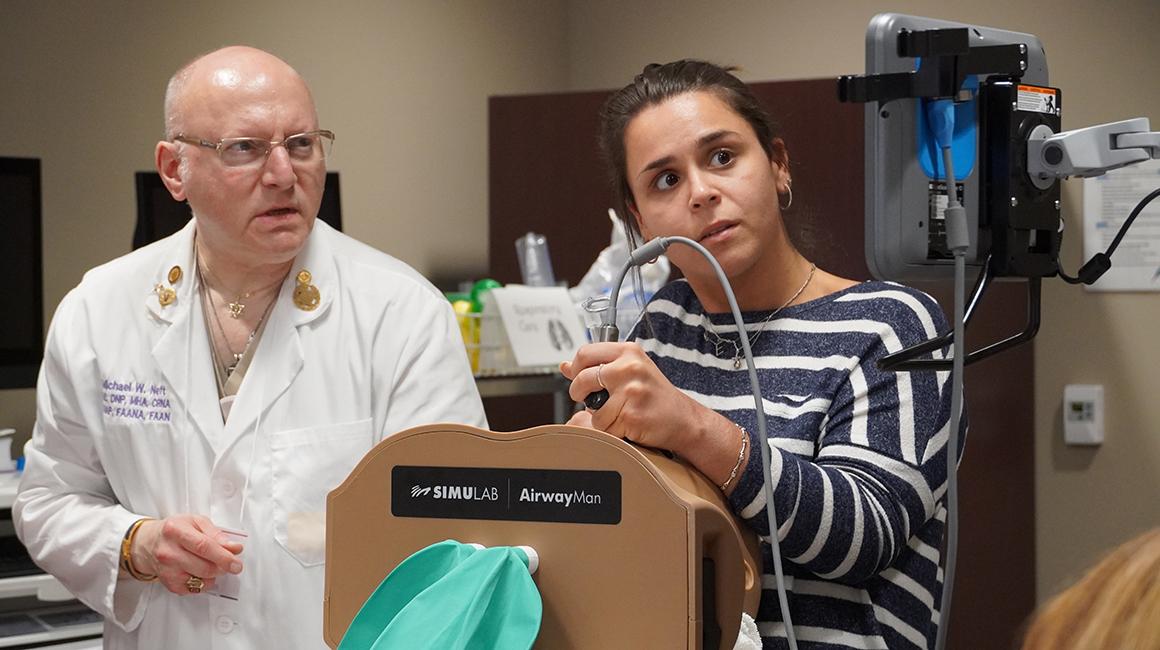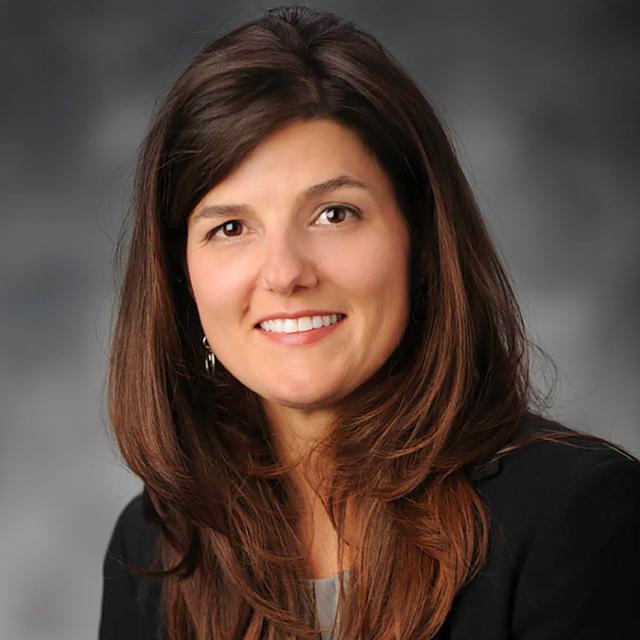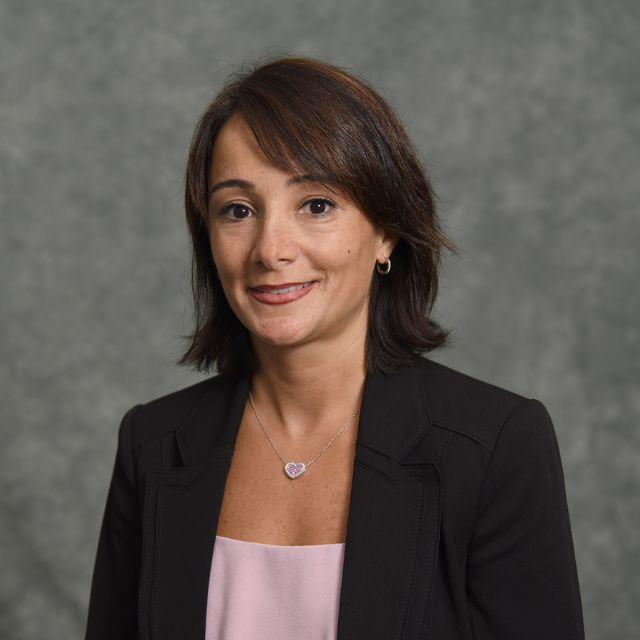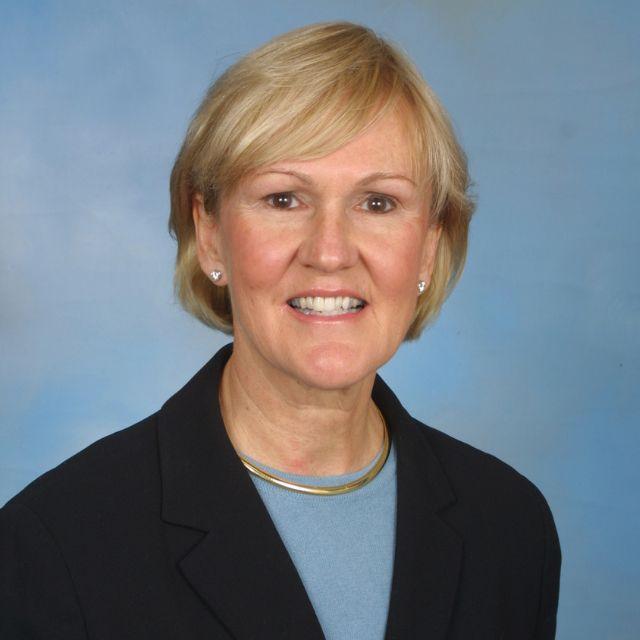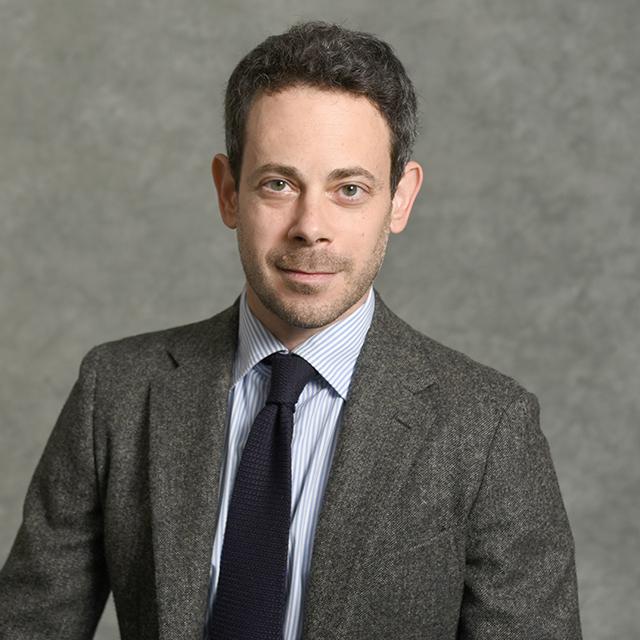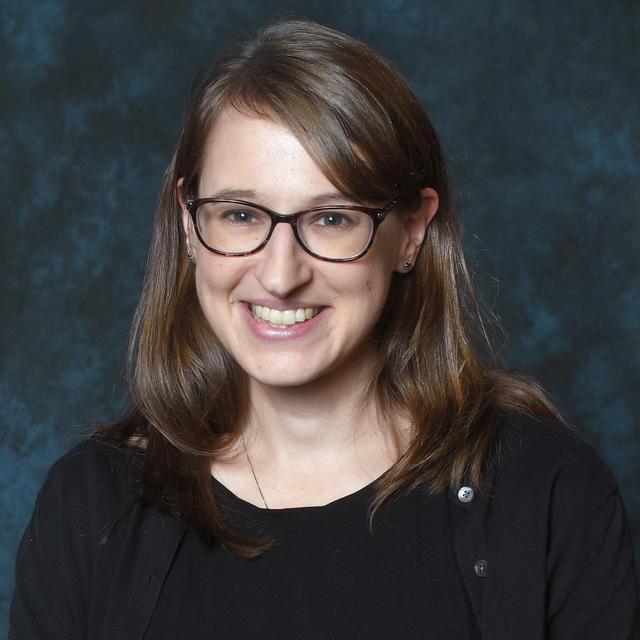Doctor of Philosophy in Nursing
Over the past 30 years, more than 100 nurse scientists have graduated from our Doctor of Philosophy (PhD) in Nursing program and have gone on to careers in nursing education, research and organizational leadership in the United States and abroad.
The goal of our PhD in Nursing program - the first completely online PhD program in
the country - is to engage you in an intensive, rigorous manner that prepares you
to be a nurse scholar. Applied research courses in qualitative, quantitative and mixed
methodologies will prepare you to function as an independent researcher upon graduation.
PhD Program Outcomes
The overall purpose of the PhD in Nursing program is to prepare graduates for a lifetime of intellectual inquiry, creative scholarship and research. Graduates of the program will be competent in research, scholarship and leadership within the profession of nursing. The graduate must possess and demonstrate the following competencies:
- Function as an independent researcher and conduct original research that builds upon prior research and expands the science of nursing.
- Integrate theoretical frameworks and research findings from other disciplines to enhance the practice of professional nursing.
- Produce scholarly work that contributes to the science and profession of nursing by communicating creative solutions to problems in nursing and health care.
- Demonstrate leadership and collaborative strategies to reduce health care disparities on a local, national and international level.
- Help improve the health of the community by generating new evidence for nursing practice that solves problems related to health care delivery.
- Evaluate issues that affect health care and advocate for change in health care policies based on evidence and the principles of social justice.
Period of Candidacy for the Doctor of Philosophy
A student is required to satisfy the Doctor of Philosophy in Nursing (PhD) degree requirements within eight (8) calendar years from the semester in which the student completes the first course for the degree. A student is required to complete all PhD Program course work, including core courses, electives, cognates, and practica, within five (5) calendar years from the semester in which the student completes the first course for the degree. Under unusual circumstances, the student may apply for an extension of the statute of limitations. Extensions of up to one (1) year (maximum total program – 9 years) may be granted under special circumstances. Students should consult the Nursing Graduate Student Handbook for additional information.
Students may not be enrolled in more than one doctoral program at any given time.
Program Information
The online PhD in Nursing program prepares you to become an independent researcher and nurse scholar through doctoral courses in qualitative, quantitative and mixed methodologies. An online Doctor of Nursing Practice to PhD option is also available.
Program Type
Major
Degree
Doctorate
School
Duration
3 or 4 years
Required Credit Hours
56
More about the PhD in Nursing
PhD Overview
Various Program Options
The program begins in May with the start of the summer semester. We offer three-year and four-year curriculum options, as well as a DNP to PhD program, which permits nurses with a DNP degree to gain valuable skills that will enable them to function as independent researchers.
All options are offered online with residency requirements at our Pittsburgh, PA, campus as well as at Trinity College in Dublin, Ireland as part of one study abroad experience.
Three-Year and Four-Year Curriculum Options
The School of Nursing offers both a three-year and a four-year option for pursuing a PhD in Nursing. This allows you to apply to the program track that fits best with your goals and lifestyle. Although the tracks maintain the same coursework, they differ in their required level of commitment.
The three-year track requires the completion of six to ten credits each semester, making it ideal for students who can dedicate their focus primarily to their studies. On the other hand, the four-year track demands six credits per semester, providing a more relaxed pace suitable for students who may need to balance their academic pursuits with other life or work commitments.
DNP to PhD Program
Apply the knowledge and skills you learned in your DNP program to this DNP to PhD option which allows you to conduct research related to your DNP Project. The DNP to PhD program requires completion of 38 credits, which typically takes two-and-a-half years, including dissertation.
Program coursework schedule by year
The program can be completed in either three or four years. Both options total of 56 credits, and the coursework remains the same. View the two curriculum schedules for both three- and four-year options.
Residency requirements
Residency One: Doctoral Week
Every student admitted to the PhD program is required to come to the Pittsburgh, PA, campus for the first residency, usually held during the second or third week of May. This week includes an orientation to the PhD program and provides an opportunity for students to meet faculty and participate in live classes for the courses in which they are enrolled that summer.
Residency Two: Study Abroad
Students enrolled in GPNG 924 Methods of Scientific Inquiry II will take part of the course as a study abroad experience (approximately 10-14 days) in Dublin, Ireland, where students will have housing at Trinity College.
*Please note that any tuition discounts that graduate students receive are not applicable to study abroad courses.
Residency Three: Topic and Committee Approval
This residency provides an opportunity for students to meet with their faculty mentor on campus for discussion and writing around dissertation topic development in preparation for approval.
Defenses
Each student must write and defend a dissertation on a topic of their choosing. You can view a list of recently defended dissertation topics for ideas here. As part of the PhD curriculum, you will be required to make both a proposal defense and a final defense.
Proposal Defense
The Proposal Defense is an oral defense of a written dissertation research proposal.
Final Defense
The Final Defense is an oral defense of the completed dissertation. Students make one public oral defense. The University sets a deadline date for the final defense. Prior to this deadline, students must have already:
- Successfully defended their dissertation.
- Made any corrections requested by their dissertation committee.
- Submitted an approved electronic (ETD) version of their dissertation.
Students need to work with their committee chairs to schedule their final defense dates at least four to six weeks prior to the University deadline.
Meet the PhD Faculty
The PhD faculty includes several fellows and department chairs. All faculty have areas of research expertise, and we invite you to connect.
PhD Program Scholarships
Two $17,000 new student scholarships are available. Students who are accepted, deposited and enrolled in the PhD in Nursing program are eligible to apply.
PhD Student Professional Development Fund
As a welcome to newly enrolled PhD students, the School of Nursing supports students' future scholarship by providing a one-time $2000 award to be used for professional development activities.
Revisions to courses and curricula are ongoing. This course socializes beginning PhD students to the role of Nurse Scholar and Scientist.
Students will explore the state of the science in a phenomenon of interest and to
conceptualize gaps in scientific knowledge specific to their research topic. Intellectual
enrichment activities will be underscored to facilitate: 1) identification and critical
evaluation of gaps in existing knowledge in a specific scientific domain; 2) systematic
exploration, critique, and synthesis of existing scientific literature; 3) participation
in scholarly dialog and constructive evaluation of a scientific body of knowledge.
Published theoretical and empirical literature will be examined to facilitate the
development of the student's unique ideas regarding how to fill existing gaps in current
knowledge for their specific scientific area. At the end of this course, students will be able to describe their emerging role as
a Nurse Scientist and Scholar; articulate their researchable topic in relation to
a research question; examine and critique the current scientific literature for knowledge
gaps in their topic of interest; and synthesize the extant literature within the context
of their research interest. Examines contemporary health policy through the lens of social and distributive justice.
A major focus will include the identification, formulation, and legitimation of health
policy in the United States. At the conclusion of the course, the student will be able to trace elements of social
and deliberative justice in American health policy; analyze the contemporary health
care environment and its impact on health policy in the United States and beyond;
recognize opportunities to create policy-level changes and weigh the impact of professional,
organizational, and governmental policies on health delivery/practice; discuss the
influences of political ideologies and fiscal constraints on the health care agenda;
and discuss health policy in an age of globalization and terrorism. This course focuses on both the history of philosophy of science and the philosophical
and theoretical issues involved in the discovery and verification of theory. Selected
writings of Popper and Kuhn are discussed in relationship to how they guided nursing
research development. Readings from the nursing literature will focus specifically
on how the philosophers impacted nursing knowledge and research. At the completion of this course, the student will be able to explicate the philosophies
of Popper, Kuhn, and other philosophers whose work has influenced the development
of nursing research and the advancement of knowledge; discuss the implications of
Kuhn's concept of paradigm shifts as it relates to nursing practice; discuss the assigned
literature of nursing scholars as the readings relates to History of Philosophy; discuss
the meaning of theory and its relevance to knowing; clarify various methods by which
a person comes to know; conduct a concept analysis; and analyze Walker and Avant's
steps in theory development. Pre-requisite: GPNG 927 Structure of Nursing Knowledge At the conclusion of the course, the student will be able to; design a study that
uses appropriate quantitative methods to address complex problems in nursing and health
care; analyze the complexity of relationships among the research problem(s), state
of the science, and design; describe the role of theoretical and conceptual frameworks
in designing and conducting a study; and describe the philosophical foundations of
mixed methods designs. Pre-requisites: GPNG 923 Methods of Scientific Inquiry I and GPNG 927 Structure of
Nursing Knowledge At the conclusion of the course, the student will be able to; compare and contrast
selected qualitative methods for discovering and documenting nursing knowledge; describe
selected qualitative data collection strategies to investigate a nursing phenomenon
of interest; describe the process of considering appropriate data analyses procedures
to analyze data; delineate the six major mixed methods designs; and describe the steps
in mixed methods data collection used in different types of designs. This course explores the current state of the art of nursing research and the major
research and funding trends in nursing and health care. Emphasis is placed on preparing
a fundable grant application for dissertation study. A variety of pre-doctoral funding
sources are explored. NIH-NINR mechanisms are addressed. Emphasis is also placed on
developing a fundable program of research and understanding ethical issues related
to research. The importance of multidisciplinary research to build science will be
discussed. At the conclusion of this course, the student will be able to explore the relationship
between a national research agenda and the major research and funding trends in nursing
and health care; develop a program of research that reflects the student's research
interests, plans for dissertation and future research goals; identify funding sources
for research in nursing and health care; apply the necessary principles of ethics
in research when designing nursing research studies including the budget; discuss
the key factors necessary to build a research team; and prepare a grant application
for dissertation study. The focus of this course is to promote a broader understanding of the student's phenomena
of interest through the process of qualitative inquiry, immersion and Field Work.
Students are expected to choose a particular area of clinical research interest and
keep field notes, observations and insights. Students will then analyze their field
notes using a chosen process of analysis with a data manager. In moving from stranger
to friend the perspective researcher should be aware of emerging research questions
in relation to the domain of inquiry, regardless of the chosen methodology. The student
will arrive at research questions grounded in the clinical area or area of inquiry
with support from the literature and the prospect of moving to the next phase of inquiry.
Students will have ample opportunity to work with data and use a data manager to assist
with data analysis. * Students in the TCN post masters program must be involved with phenomena related
to culture.Course Descriptions
- 3 credits
- 3 credits
- 3 credits
Patterns of "knowing" are explored. The process of questioning what one knows and
from whom or from where one has gained the knowledge will be explored. Using the method
delineated by Walker and Avant, the various methods of theory development are analyzed.
The contextual relevance of theory to practice is discussed. The course begins the
process of looking at various theories as they relate to advance practice.
- 3 credits
This course focuses on the analysis of research methodologies that guide the collection
and analysis of quantitative data. The focus will be on the articulation of research
questions with appropriate research methodologies. A critical analysis of quantitative
research designs and methods and scientific inquiry from the perspective of the positivistic
paradigm will be explored. Focus is placed on descriptive, correlational, experimental
and quasi-experimental designs as applied to nursing problems.
The historical and philosophical foundations of mixed methods will be studied, and
the principles for designing a mixed methods study will be introduced.
- 4 credits
This course focuses on the analysis of research methodologies that guide the collection
and interpretation of qualitative data. Included are naturalistic, conceptual, interpretive
and analytical research methods. In addition, detailed descriptions of the practical
aspects of how mixing of methods can be rigorously achieved will be addressed. The
six major mixed methods designs will be explored.
- 4 credits
- 3 credits
This course builds on the theory development course. In this course greater emphasis
is placed on epistemology, the study of how knowledge is acquired. Further, the course
examines how knowledge builds. Students are led through this process by looking at
the work of Michael Polyani and, to a lesser extent, Benner's Novice to Expert. Since
theorizing is an ethical endeavor and choices made may have ethical consequences in
practice, this theme permeates the course. The testing of theory, refinement and modification
of theory, and the use of theory in practice are brought together to explore and project
the future direction of theory-based practice for advanced practice nurses and other
health care professionals.
- 3 credits
This course extends the students’ theoretical understanding of quantitative
designs related to research in health care and provides the opportunity for applied
practice in quantitative methods. Topics to be covered include (but are not necessarily
limited to) review of foundation statistical knowledge (as covered in prerequisite
coursework), analysis of variance, repeated measures ANOVA, and regression analysis.
Data management will also be examined. Students will gain competence in using common
statistical tests and SPSS (statistical software package) to be able to conduct and
report quantitative research from an applied perspective.
- 3 credits
- 3 credits
- 3 credits
- 12 credits
- 15 credits


